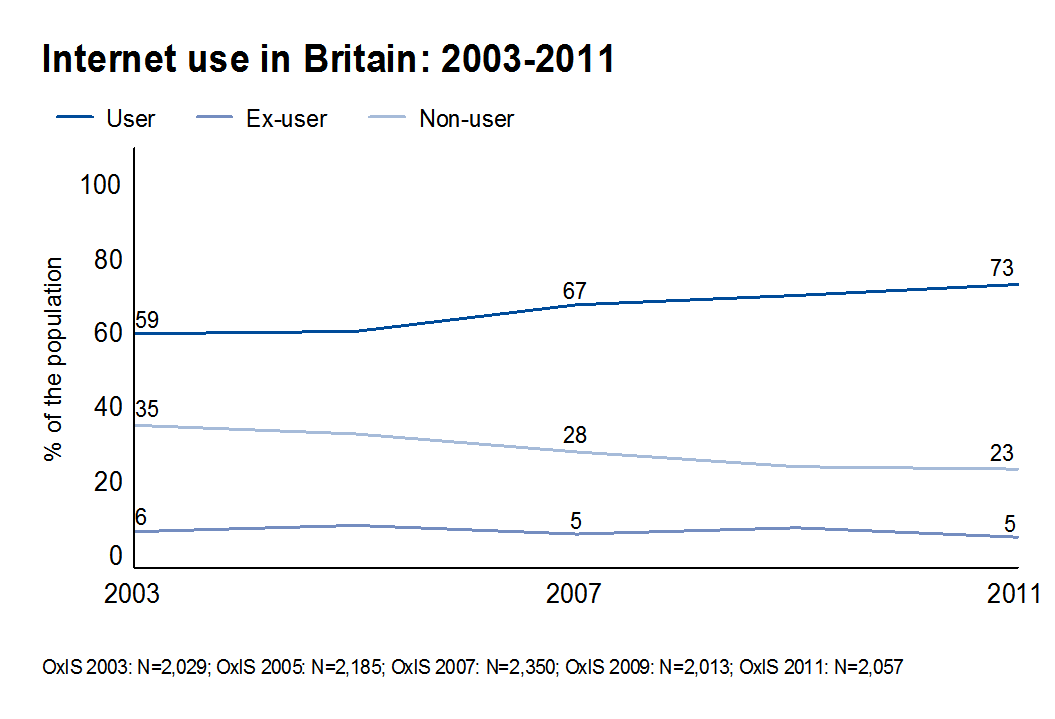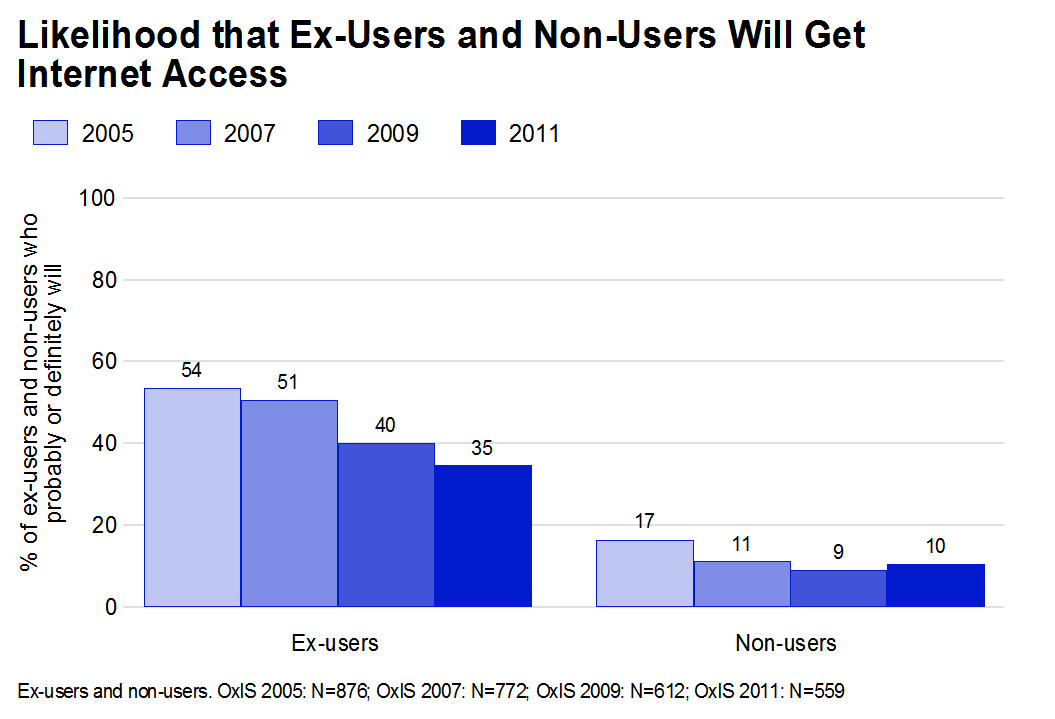This blog post is the first of a series on people who have never used the Internet before (non-users) and people who have had used the Internet in the past but do not use it now (ex-users). As the Internet plays increasingly significant role in our everyday lives – with major parts of the society operating online – it is very important to understand the characteristics of the people excluded from the online worlds. Nowadays staying offline may have severe implications for an individual in terms of limiting access to services, information, debates and activities that may be more accessible online or are sometimes available only online.
The graph below shows that over one quarter of the British population did not use the Internet in 2011: 23% had never used the Internet and 5% had used it in the past but do not use it anymore. The proportion of non-users has been steadily declining from 35% of the population in 2003 to 23% in 2011. So over a period of eight years 12% of the population migrated from the non-user to Internet user category. Interestingly, the proportion of ex-users remained stable, at around 5% of the population.

We asked non- and ex-users how likely they are to gain access to the Internet in the future. As shown below more ex-users (35%) than non-user (10%) are confident that they will go online soon. For both non- and ex-users the likelihood of getting Internet access has dropped from 2005 to 2011. One possible explanation is that non- and ex-users who were most likely to migrate online have done so and the remaining population of non-users is increasingly composed of those least likely to use the Internet. It is notable that almost two-thirds of ex-users say they are not likely to get access in the future.
In his review of the literature on the digital divide van Dijk (2006) identifies five inequalities referred to by the digital divide: technological, immaterial, material, social and educational. People who stay offline do not have access to the same technological opportunities; life chances and freedom; economic, social and cultural capital and resources; positions, power and participation opportunities; and development of skills and capabilities. The scope of these issues underlines the importance of the Internet. In order to invest in the right resources and encourage people to join the Internet, one has to understand the characteristics of non- and ex-users and the reasons why they are not or have stopped using it. Our goal is to shed light on these questions in this series of blog posts.
Reference:
van Dijk, J. (2006). Digital divide research, achievements and shortcomings. Poetics, 34: 221- 235.

